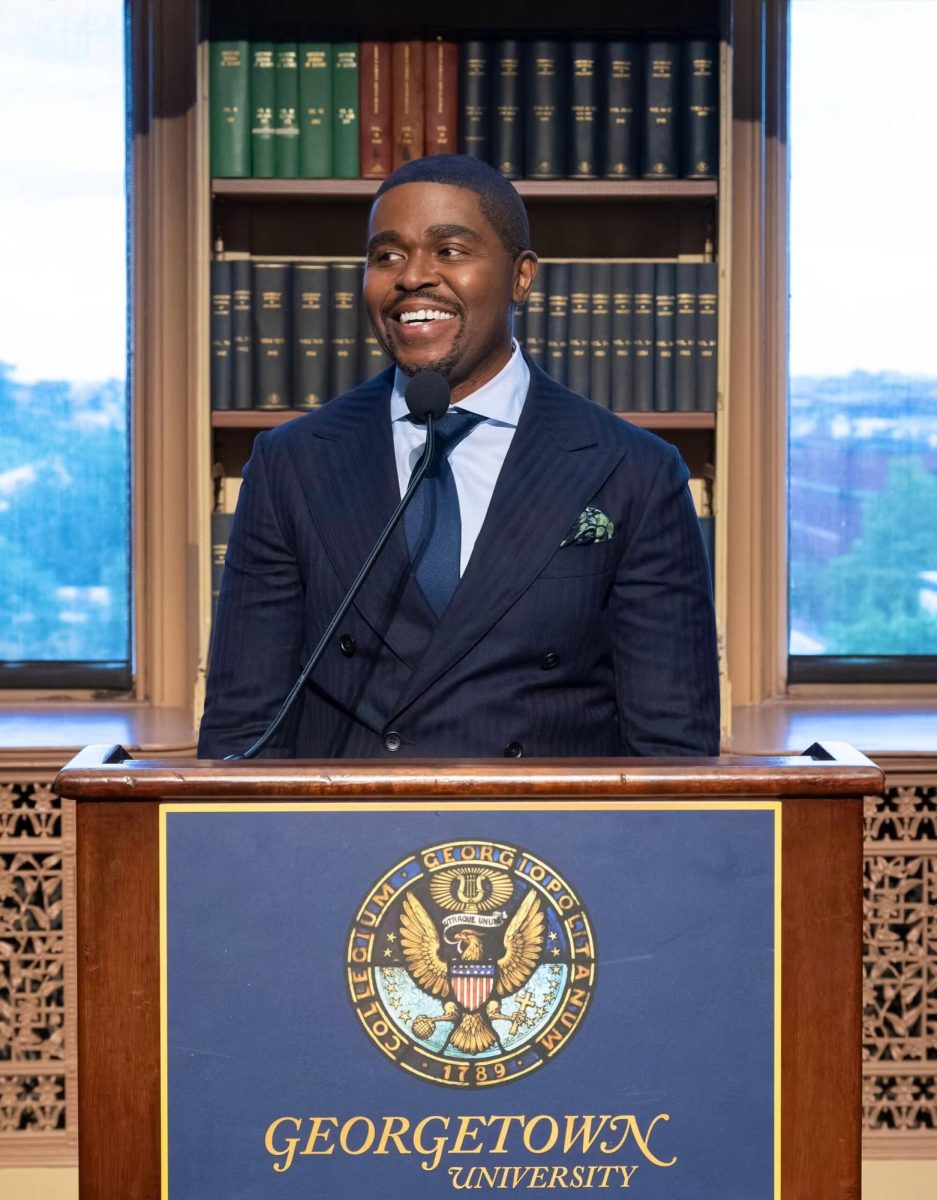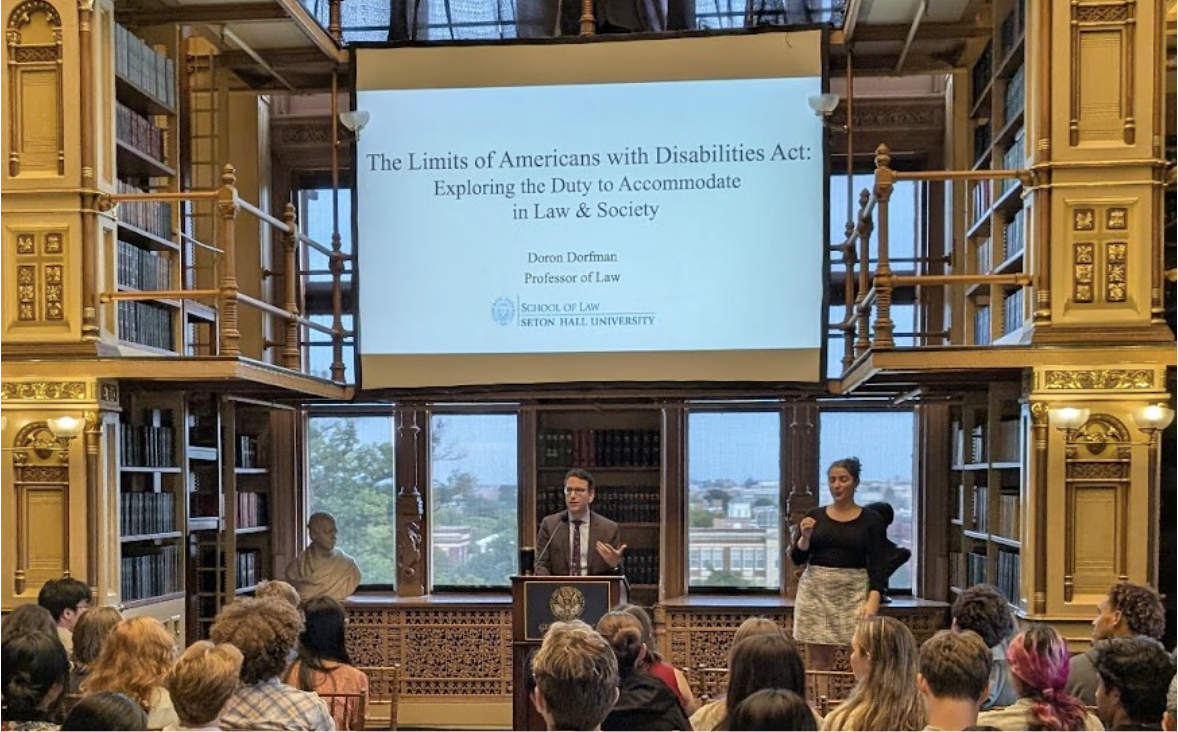The dean of the Georgetown University School of Health emphasized the role of Federally Qualified Health Centers (FQHCs) in providing health care in Washington, D.C., at a March 31 event.
The Health Systems in Medicine (HSIM) program, which educates students on providing quality medicare and public health, hosted the dean, Christopher King, to discuss the social determinants of health, which are non-medical factors that affect a person’s health outcomes. King focused on FQHCs, community-based health care organizations that provide comprehensive primary care services to underserved populations, regardless of their ability to pay.
The HSIM program trains students to recognize these determinants, which include socioeconomic status, education and social support networks, within the larger health care system.
King, an expert who researches health system transformation, said health care systems should reconceptualize health care delivery to promote better societal outcomes.
“They should ask themselves: How do we cultivate a society that delivers prevention and wellbeing?” King said at the event. “That cares for the whole person?”
FQHCs receive federal funding and must meet specific standards set by the Health Resources and Services Administration (HRSA).
King said hospitals and health systems should consider patient backgrounds and social determinants to reduce the risk of patient readmission to the hospital.
“We have a system of ‘sickcare’ instead of health care. Currently, we treat the sickness and not readmission. We need to care for the whole person,” King said.
According to King, FQHCs improve health equity by serving vulnerable communities, including low-income individuals, uninsured populations and those with special health care needs.
Caroline Efird, an assistant professor in the department of health management and policy who researches health equity in rural populations, said another problem arises when patients fail to feel personal connections with their providers.
“When patients have told me about positive experiences they’ve had with health care providers, they frequently reference times when their physician or nurse connected with them on a personal level,” Efird wrote to The Hoya. “Then providers ask questions about their family, or reference a topic that was discussed during a prior appointment — these points of connection go a long way for building trust and rapport.”
Lois Wessel, a professor at the School of Nursing and School of Medicine, said the interest in working at FQHCs demonstrates a positive trend toward personal, patient-forward care.
“I really feel at the Federally Qualified Health Centers, the people that are attracted to working there are a unique breed of people,” Wessel told The Hoya. “The care is very patient-centered.”
Wessel said FQHCs still face limitations, such as an inability to provide specialist or imaging services after delivering primary care.
“These FQHCs can provide basic care, but beyond that if a patient needs an X-ray or an MRI, that has to be done at a hospital,” Wessel said.
Wessel added that these issues generally stem from issues within the health care system in the United States that lead to burnout, saying the immense quantity of patients doctors see daily and the limited time to accommodate each one represents the core of this issue.
“Doctors have time limits, and the health care community is really burnt out and overwhelmed,” Wessel said.
According to King, the solution lies in hospitals working with community health centers to exchange holistic care practices, with hospitals providing necessary resources.
King said it was important to have patience and creativity in providing inclusive health care, adding that the effort of providing equitable care shouldn’t be delayed by those who do not care to provide accessible care.
“What we have to do is the importance of staying true to our mission,” King said. “Do not let the noise prevent us from doing what we need to do.”




